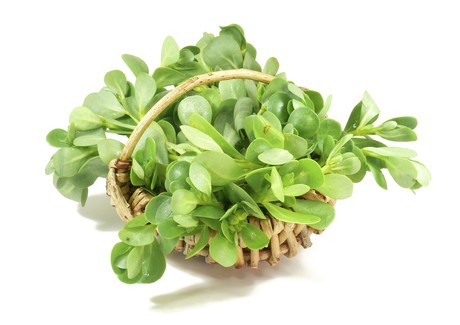Plant extracts found to mimic insulin

Austrian researchers have identified the anti-diabetic properties of purslane (Portulaca oleracea, pictured) and tindora (Coccinia grandis) after conducting a study on seven different plant extracts with the potential to mimic insulin activity. The results have been published in the journal PLOS ONE.
The scientists, based at the University of Applied Sciences Upper Austria, investigated plant extracts reported to exhibit anti-diabetic effects via GLUT4 (glucose transporter protein type 4) translocation-inducing properties. Induction of GLUT4 translocation without insulin is considered a key aspect to decrease elevated blood glucose levels in diabetics, but due to the lack of pharmaceuticals that increase the uptake of glucose from the blood circuit, the researchers considered that application of natural compounds might be an alternative strategy.
By combining established in vitro models with modern fluorescence microscopy and atomic force microscopy, the effect of the herb extracts on cellular glucose uptake was studied extensively. Only purslane and tindora led to enhanced GLUT4 translocation — including plasma membrane insertion and glucose uptake — in cell models. Moreover, both extracts resulted in a distribution and clustering of GLUT4 in the plasma membrane similar to that of insulin and appeared to reduce blood glucose levels in a living organism.
The results bode particularly well for purslane, which has been used as a folk medicine for the treatment of diabetes for many years. Purslane extract manufacturer Frutarom Health, whose product was used in the study, suggested that the herb extract could now be incorporated into various supplements and food applications, allowing food manufacturers to create healthy foods for people needing to control their blood glucose levels.
Noxopharm says paper reveals science behind its immune system platform
Clinical-stage Australian biotech company Noxopharm Limited says a Nature Immunology...
Neurosensing/neurostimulation implants session to be held on Monday
On Monday, a session at UNSW Sydney will include people who are benefiting from bioelectronics...
argenx and Monash University partner against autoimmune diseases
To advance a pioneering molecule for autoimmune diseases, global immunology company argenx has...



